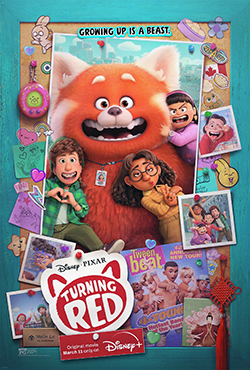TP2000
Well-Known Member
They didn't release Turning Red in theaters. That's weird, if Disney really thinks it's a great movie people would pay to see.
Which brings me to the next question... How does a movie studio justify or quantify it's financial gain, or even write off the financial loss, from a movie if it goes directly to the studio's streaming service?
For over 100 years, the box office receipts were how movie's were judged and quantified. What do they use now if the viewer already paid their fifteen bucks for the month for the studio streaming service. Especially if an entire family of four is watching and rewatching that movie for 15 bucks a month, when just a few years ago the entire family would have had to buy 15 dollar movie tickets per person each time they wanted to see the movie?
It seems to me the studios have a lot to lose if they spend big bucks to produce a movie, only to just release it on their low cost streaming service for unlimited family downloads.
Which brings me to the next question... How does a movie studio justify or quantify it's financial gain, or even write off the financial loss, from a movie if it goes directly to the studio's streaming service?
For over 100 years, the box office receipts were how movie's were judged and quantified. What do they use now if the viewer already paid their fifteen bucks for the month for the studio streaming service. Especially if an entire family of four is watching and rewatching that movie for 15 bucks a month, when just a few years ago the entire family would have had to buy 15 dollar movie tickets per person each time they wanted to see the movie?
It seems to me the studios have a lot to lose if they spend big bucks to produce a movie, only to just release it on their low cost streaming service for unlimited family downloads.

